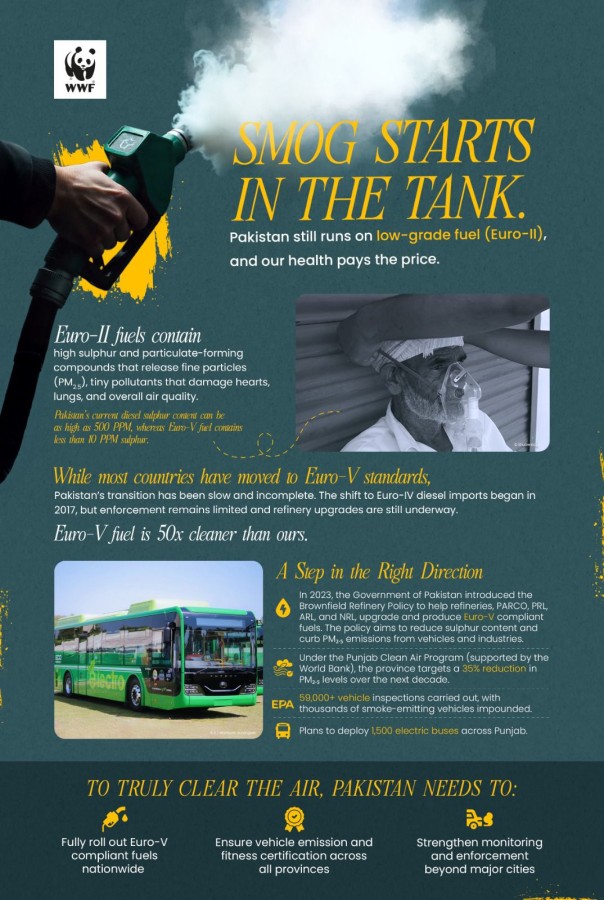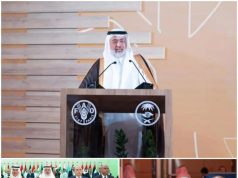ISLAMABAD, Thursday, October 23, 2025 (WNP): Pakistan’s urban centers are facing an escalating air pollution crisis that continues to endanger public health, with Lahore and Karachi ranking among the world’s most polluted cities. WWF-Pakistan has warned that unless systemic reforms are implemented—particularly targeting vehicular emissions and low-quality fuel use—the country will continue to suffer from dangerously poor air quality.
According to air quality data, Lahore and Karachi recorded alarming Air Quality Index (AQI) levels of 234 and 182 respectively on October 21, placing them in the “very unhealthy” and “unhealthy” categories. These figures far exceed the World Health Organization (WHO)’s recommended limits, signaling an urgent need for long-term action rather than short-term fixes.

WWF-Pakistan identified vehicular emissions as the single largest contributor to air pollution in major cities. The organization emphasized that Pakistan’s reliance on low-grade Euro II fuel—far below the internationally accepted Euro V standard—and the widespread use of poorly maintained buses, trucks, and tractors have worsened the smog crisis.
“Cleaner fuel, stricter vehicle emission standards, and strong enforcement are the solutions,” said Hammad Naqi Khan, Director General of WWF-Pakistan. “We know what needs to be done. Without decisive action, temporary measures will continue to fall short, leaving millions of Pakistanis exposed to hazardous air.”
WWF called on the government to adopt Euro V-compliant fuels nationwide, introduce rigorous vehicle fitness testing, and extend regulatory oversight to agricultural machinery, which also contributes significantly to particulate emissions.
Beyond vehicle emissions, WWF highlighted other major pollution sources, including small-scale industries, brick kilns, furnaces burning substandard fuel, and open waste burning, despite official bans. Seasonal crop residue fires remain a recurring problem as farmers clear land for wheat cultivation, further aggravating smog levels across Punjab and Sindh.
Over the past year, the Punjab government has introduced several positive measures, including stricter brick kiln regulation, the distribution of “happy seeders” to farmers, and inspection of vehicles under the Punjab Clean Air Program. However, WWF cautioned that smog guns—increasingly deployed in urban centers—offer only localized and short-lived relief, consuming large quantities of water and failing to address the underlying causes of pollution.
“These resource-intensive interventions are not sustainable substitutes for systemic reforms,” WWF noted, urging authorities to focus on long-term, enforceable strategies such as emission reduction, renewable energy promotion, and improved public transportation systems.
In 2024, WWF-Pakistan released a comprehensive ten-year air quality analysis of Lahore, which proposed actionable policy recommendations including installation of exhaust particulate filters on heavy-duty diesel vehicles and strict enforcement of emission standards. The findings underscored the urgent need for a national clean air strategy backed by scientific data and institutional accountability.
Founded in 1970, WWF-Pakistan is one of the country’s leading environmental organizations working to conserve biodiversity, combat climate change, and promote sustainable resource management. Operating through 26 offices with nearly 250 professionals, the organization continues to play a pivotal role in advocating for cleaner air and a healthier environment for all Pakistanis.



